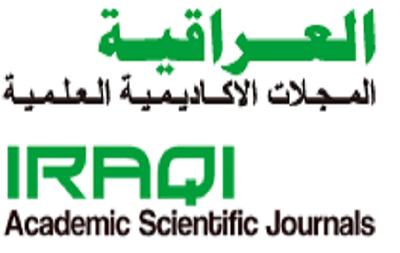Playing under pressure in limited spaces and its impact on developing speed and endurance of skill performance in futsal
Main Article Content
Abstract
The research aims to identify the effect of playing under pressure of limited spaces and its effect on developing the speed and endurance of skill performance in football. The researchers used the experimental method to suit the study problem. The research sample consisted of 12 first-class football players. The researchers applied the prepared training method to the research sample. The SPSS system was also used to obtain the research results. The researchers concluded that the compound exercises under study have a positive effect on developing the level of endurance and speed of skill performance. The repetition of these compound exercises with an integrated physical and skill-related nature, and similar to the conditions of competition, contributed effectively to developing the level of physical abilities under study. The researchers recommend the necessity of using compound exercises in training units to develop the endurance and speed of skill performance, and using compound exercises similar to competition movements to develop the players' ability to perform matches.
Article Details

This work is licensed under a Creative Commons Attribution-NonCommercial 4.0 International License.
References
Abdulhussein, B. N., & Hadi, A. K. (2022). The effect of using the reciprocal method and the additional duties on learning some basic football skills for students. Revista Iberoamericana de Psicología Del Ejercicio y El Deporte, 17(2), 5.
Ahmed, A. A. A. (2019). The effect of fast attack exercises on developing strength characterized by speed, motor response, and scoring accuracy in futsal. Journal of Sports Education Studies and Research, 29(1), 83–92. https://jsrse.edu.iq/index.php/home/article/view/572
Al-Rabadi, K. J. (2004). Sports Training in the Twenty-First Century (2nd edition, p. 64). Dar Wael for Publishing and Distribution.
Al-Sumaidaie, L. G. et al. (2010). Statistics and Testing in the Sports Field (1st ed, p. 219). Erbil.
Darwish, et al. (2002). Measurement, evaluation, and match analysis in handball: Vol. 1st edition (Dar Al-Kitab Publishing House, Ed.).
Hashem, Y. H. (2011). Special exercises to develop the accuracy of motor and skill performance for football players (1st ed, p. 128). Arab Publishing and Distribution Complex Library.
Hassan, M. K., & Moseekh, L. Z. (2022). The effect of recovery exercises using assistive devices and tools on the fatigue curve and basic skill performance of soccer players. Kufa Journal Physical Education Sciences, 4(5).
Hussein, A. A. J., Ahmed, M. S., & Kamal, M. W. (2018). Study of some physical and motor abilities and anthropometric measurements, and their relationship to the skill of dribbling in football. Journal of Sport Science.
Marwan, A. M. (2001). Determining Physical Fitness Tests (1st ed, p. 90). Al-Warraq Foundation.
Mashkoor, N. H., & Othman, I. A. (2025). The relationship of thinking patterns associated with the two halves of the brain to the skills of handling and suppression in indoor soccer for female students of the College of Physical Education and Sports Sciences. Journal of Sports Education Studies and Research, 35(1), 57–75. https://doi.org/10.55998/jsrse.v35i1.1005
Moseekh, L. Z., & Saleh, R. S. (2021). The effect of anaerobic endurance exercises on developing some special physical abilities of young football players (16-18 years old). International Journal of Sports Science, 3(6), 29–40. https://doi.org/DOI:https://doi.org/10.71377/2crz0p79
Muhammad, A. A. J. (2019). Study of the players’ level of implementation of the man-to-man defense method in futsal. Journal of Sports Education Studies and Research, 29(4), 359–370. https://jsrse.edu.iq/index.php/home/article/view/237
Muhammad, S. H. (1995). Measurement and Evaluation in Physical Education and Sports (3rd edition, p. 202). Dar Al-Fikr Al-Arabi.
Qasim, H. H. (1993). The science of sports training, its principles, and applications in the field of training. Dar Al-Fikr, Baghdad.





 IASJ
IASJ CC-BY-4.0
CC-BY-4.0 turnitin
turnitin ISSN
ISSN DOAJ
DOAJ Crossref
Crossref GoogleScholar
GoogleScholar Orcid
Orcid